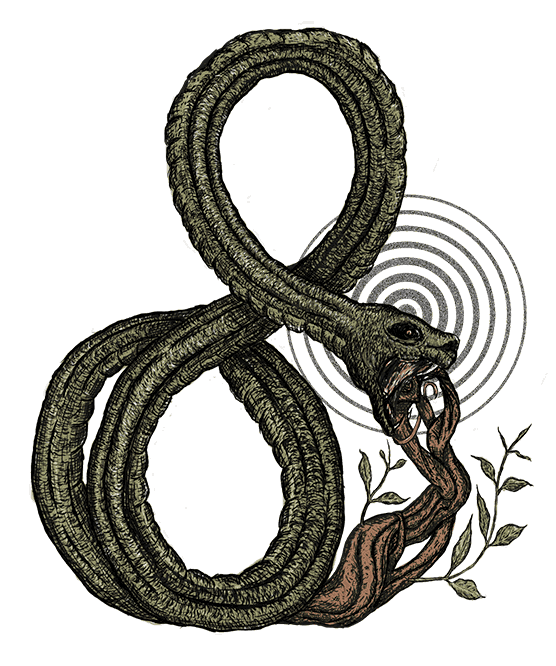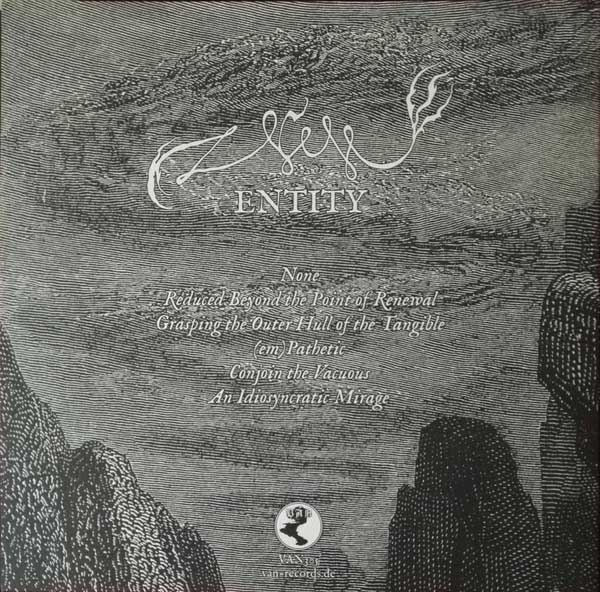Misþyrming III
2024-06-19
by Niklas Göransson
By the hammer let none be saved – the triumph of Algleymi saw Icelandic black metal band Misþyrming sweep across Europe. In the wake of plague-like silence, they resurfaced with their third opus, Með hamri.
DAGUR: After “Söngvar…”, I received numerous offers. I dismissed any contracts with small print as a clear indication of us not being on the same page. One industry bigshot warned that our career would crumble if we didn’t ‘seize the opportunity’ and sign with a major label – preferably his. I thought, ‘Hell no. I’ll stand or fall by my own work.’ I had already decided that NoEvDia was the perfect match for MISÞYRMING.
What we know today as Norma Evangelium Diaboli grew out of French cult label End All Life Productions.
NoEvDia burst onto the scene in 2003 with a trilogy of black metal milestones: KATHARSIS’ “Kruzifixxion”, FUNERAL MIST’s “Salvation”, and WATAIN’s “Casus Luciferi”, followed by DEATHSPELL OMEGA’s “Si Monvmentvm Reqvires, Circvmspice” the subsequent year.
DAGUR: Interestingly, I didn’t realise they were my favourite label until I owned almost their entire catalogue. I didn’t deliberately set out to collect these releases; I just bought albums I liked, and most of my preferred ones happened to be from NoEvDia.
In the autumn of 2018, Dagur put together a package that included a fully mixed and mastered version of “Algleymi” – the new MISÞYRMING album – and a printed document outlining its concept.
DAGUR: I explained my reasons for submitting it to NoEvDia, praised their high standards, and expressed my eagerness to collaborate. After shipping the parcel, I sent a brief email to inform them of its imminent arrival. They responded with, ‘Okay, interesting. We’ll wait.’ Then, an entire month went by with no sign of my package.
Neither the Icelandic nor the French postal service could locate it, so Dagur sent everything digitally. His plan worked, and MISÞYRMING joined the NoEvDia roster.
DAGUR: Six months later we’d completed everything, and “Algleymi” came out on May 24 – coincidentally, on the twenty-fifth anniversary of “De Mysteriis Dom Sathanas” (MAYHEM). On that very day, the parcel miraculously arrived at NoEvDia’s doorstep. It felt as if cosmic forces had aligned in some way.
This announcement raised quite a few eyebrows. Many expected MISÞYRMING to join one of the bigger, mainstream record companies. Others were surprised that NoEvDia would collaborate with MISÞYRMING – some even going so far as to question the label’s judgement. It was pointed out that the Devil is conspicuously absent from Dagur’s lyrics.
DAGUR: To me, this is self-explanatory. I am genuinely captivated by the atmosphere surrounding the label’s most iconic titles and their style reflects my creative aspirations. Also, the lyrical content of most NoEvDia releases surpasses the standard ‘666, pentagram, Satan’ themes of generic or older black metal. The new millennium saw a renaissance, with many bands delving into sinister interpretations of the Bible and exploring blasphemous themes on an intellectual level.
What would you say your lyrics are about?
DAGUR: Despite lacking biblical references, my themes can be just as intense. I draw inspiration from human nature, which forms the basis of all spiritual beliefs. I explore the depravity and darkness inherent in mankind, recognising that everyone is tainted by sin. It’s entirely possible to highlight the toxic aspects of humanity without relying on religious themes. Having rejected Christianity at a young age, it holds no significance for me.
Dagur’s MISÞYRMING lyrics are written in Icelandic, with English translations included in the booklet. They are somewhat cryptic.
DAGUR: I like being cryptic! I find the absence of clear-cut answers more intriguing. Such is the nature of poetry – it should be a bit mysterious. This applies not only to my lyrics but also to the music. When I discovered “Paracletus” (DEATHSPELL OMEGA), I knew repeated listening was necessary to grasp its essence. And then there are lyrics where you realise, ‘Ah, there are many subtle references here.’
Another objection to the NoEvDia association can be traced to Dagur’s physical appearance. In fairness, I find it most impressive how he’s managed to spearhead MISÞYRMING straight through the unforgiving black metal underground with that dapper haircut of his.
DAGUR: <laughs> I’ve tried growing my hair, but it doesn’t look good. Honestly, I try not to focus on this; I’ve received many comments about my looks and clothing choices, but who I am shouldn’t be defined solely by the art I create. I remember wearing tight jeans at a festival once, and someone got furious. I’m like, ‘Is this really what matters?’ Hence the hoods in our early promo shots – I wanted to distance myself from the celebrity aspect of success.
How important do you think the composer’s visual representation is?
DAGUR: When you have confidence in what you’re doing, you should be content letting your music speak for itself. While it’s important not to rely solely on gimmicks, visual aspects can establish a certain level of seriousness and showmanship – like corpse paint and blood, which pay homage to black metal traditions. It’s something I was fascinated by when seeing SVARTIDAUÐI and other Icelandic bands as a teenager.
Dagur’s experiences as part of the emerging Icelandic black metal scene are discussed in the print-exclusive MISÞYRMING feature in Bardo Methodology #8.
DAGUR: Using blood to enhance the sense of terror can have a powerful impact. It’s messy, disgusting, and has a certain stench – just like the riffs in the music. Pouring blood on ourselves before going on stage helps set the mood and puts us in the right mindset. The smell, the sensation, and the knowledge that it’s a liquid that once sustained life all contribute to the visceral experience.
A notable phenomenon over the past decade is how several death metal veterans have, somewhat inexplicably, started using corpse paint and other black metal aesthetics – with varying degrees of success, implementation-wise.
DAGUR: Mm, I think they’re going a bit over the top – covering themselves in studs and pentagrams – and it comes off as cartoonish. Within metal culture, many people don’t understand the significance of corpse paint. It’s important to strike a balance and be tasteful. There’s a fine line between looking intimidating and simply ridiculous. Personally, I’ve always disliked the KISS-inspired makeup of IMMORTAL – so much so that it prevented me from listening to their music.
Dagur and I discussed every conceivable aspect of “Algleymi” in a 2019 MISÞYRMING interview, and I don’t have much to add. I’m more keen to hear about what happened after the feature was published.
DAGUR: Among the non-puritanical black metal crowd – like the fans we gained through Roadburn and Vice – there was great disappointment with how I expressed myself about ‘social justice warriors’. They used my poor phrasing of the radical left as vegan, no-border feminists against me, and I got some backlash.
Having witnessed countless such shitstorms, I was rather impressed at how Dagur refused to grovel or apologise – despite being warned it might impact a promising career.
DAGUR: It seemed ridiculous to me how certain individuals focused on these fleeting comments when there was so much else to discuss. Ever since, MISÞYRMING keeps coming up in online discussions where people ask, ‘I like the sound of this band, but is it safe to listen to them?’ <laughs> ‘Are they fash? Is it sketchy?’ Ridiculous.
How was the album itself received?
DAGUR: To be honest, there wasn’t much to compare to since we’d only released one album before “Algleymi”. Some were disappointed that it wasn’t as chaotic and raw as the debut. I can understand this perspective, but “Söngvar…” mirrored the atmosphere and direction of that time. I’ve learned not to take online comments too seriously. What feels far more genuine to me is when people reach out directly, whether in person at a festival or through private messages.
In the fall of 2019, MISÞYRMING set out on a ten-date tour with DARVAZA and VORTEX OF END.
DAGUR: Being picked as headliners and travelling in a nightliner were significant milestones; it truly felt like success. I can’t even imagine a longer van tour. Constantly sleeping for only a few hours in a hotel and then returning to the van feels like a cyclical nightmare. Just six days of this with MGŁA and ONE TAIL, ONE HEAD in 2015 was enough to fuck up my back. Also, the shows are physically demanding since I sing, play guitar, and move my body throughout the entire performance.
Speaking of which, Gene Palubicki from ANGELCORPSE told me he struggled for years to play guitar leads and sing at the same time. Quote, ‘You need two different brains for that.’
DAGUR: It’s crucial to master the art of creating harmonies and melodies distinctive to each instrument. But that’s only one part of the equation – the other involves coordinating singing and playing, which requires dedicated practice. Seasoned frontmen who are both guitarists and vocalists often start by playing the music at a slower pace, with the lyrics in front of them, and repeating the process until it becomes ingrained in their muscle memory.
Can singing become muscle memory?
DAGUR: Absolutely – the recall of words eventually becomes second nature. When performing my early MISÞYRMING songs live, I no longer consciously remember the lyrics. They flow naturally because I’ve been singing them so many times over the years. So, it boils down to consistent practice and repetition.
It occurred to me that this was only MISÞYRMING’s second tour in five years, which I found a bit odd given the reception to your debut.
DAGUR: Well, we haven’t been declining a lot of offers, but it just didn’t happen. MISÞYRMING were actually offered an opening slot for MAYHEM, but we had a festival booked in the middle of that tour, so it fell through. And back in 2015, Nergal from BEHEMOTH told me that he’d love to go on tour with an Icelandic band like us. I tried to follow up on that later, but nothing came of it.
“Algleymi” seems to have set things in motion. In March 2020, MISÞYRMING embarked on a tour through Eastern Europe.
DAGUR: The tour was organised by a Russian promoter with a strong international network – he’d arranged for us to gradually travel through Eastern Europe to Russia and back. We flew between each country, starting with Lithuania, Ukraine, and then Belarus. Things got really strange when we landed in Minsk.
Arriving in the capital of Belarus, before passing through border control, the members were greeted by armed military personnel who spoke no English besides ‘passport’. After handing over their documents, the Icelanders were directed to a nearby office.
DAGUR: No one was there. We had some paperwork prepared but didn’t know what to do with it. Another soldier entered the office and asked for our passports. After checking them, he walked away without a word. Ten minutes later, the same thing happened with another guy. Then, we had to fill out super-complicated forms – including providing the venue and promoter’s addresses – before they allowed us to leave.
At the border gate, the band was handed a migration card to fill out. They were told that losing it would prevent them from departing Belarus the following day.
DAGUR: It was a nerve-wracking experience. Then, driving through Minsk, we could see just how fucking poor and stripped-down everything was. If they catch you smoking weed there, you’re going to prison, so we made sure to behave. The day after, we flew to Russia for a gig in Moscow. The border guards said, ‘Oh, you’re coming straight from Belarus? Walk on in!’ The Russians were far more welcoming because we entered their country from the only place that’s worse.
March 2020 probably sounds familiar to most readers, as it marked the beginning of the COVID era. The tour took place just as many European countries introduced lockdowns, banned public events, and closed their borders.
DAGUR: Our last show was in Estonia. I’m not certain when their borders closed, but I do remember they were the first Eastern European country to ban public gatherings. Fortunately, the local promoter had arranged for a film crew to capture the concert, so we might have been one of the first bands to perform a live stream during the pandemic.
Presumably, being unable to tour after releasing an album is less than ideal from a promotional standpoint.
DAGUR: Prior to the pandemic, we’d just started working with Dragon Productions as our new booking agent. Unfortunately, they’d only been onboard for a short time when everything shut down. Almost two years went by before we played a show Dragon booked for us. We had a tour lined up with REVENGE, PROFANATICA, and ULTRA SILVAM, which felt incredibly exciting to me; ULTRA SILVAM’s debut was my favourite album of 2019.
ULTRA SILVAM is a Swedish black metal band signed to Shadow Records – an underground label from Sweden that’s worked with many of the same acts as NoEvDia.
DAGUR: Unfortunately, the tour was cancelled, and we had to postpone it two or three times. The final postponement coincided with Steelfest, so we had to cancel that as well. It was hugely disappointing. The promoter has a dubious background in German hardcore, and he turned out to be a simple opportunist. He feared losing more money if he postponed the tour again, so the decision to cancel was entirely his.
NÚLL’s second album, “Entity” – the one they started tracking in late 2017, alongside the re-recording of “Algleymi” – was released by Ván Records in August 2020. The debut offered doom-inspired black metal, but I’m not quite sure how to describe this one.
DAGUR: Some might categorise it as ‘post-rock’, or some kind of emo, but I firmly stand by the authenticity of our music. “Entity” embodies a truly depressive atmosphere and sounds anything but generic. Sindri, our singer and primary composer, wrote most of the material in 2013 – but since NÚLL is a side project for everyone involved, it was never our top priority. Releasing music during lockdowns, when we couldn’t play live, felt very fulfilling.
Was this the longest time you’ve gone without performing live?
DAGUR: Ahem, we actually played a few times during the pandemic – but most of them were secret shows. Some weren’t even under the name MISÞYRMING but other projects like NAÐRA. The worst part was that we couldn’t rehearse properly. Our drummer, Helgi, lived in Holland, so the travel restrictions made it difficult for him to join us, which meant that all MISÞYRMING activities were put on hold.
log in to keep reading
The second half of this article is reserved for subscribers of the Bardo Methodology online archive. To keep reading, sign up or log in below.












